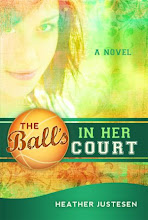I'm thinking about starting another fiction writing project, and I'm wondering to myself, how did I actually write a whole book before? If the truth were known, as it should be because I consider myself to be an honest person, each time I have written fiction, it has come out differently, and I've decided that each of these ways have their own benefits. They are as follows:
1. The I've-never-written-a-novel-before-so-I-really-have-no-idea-what-I'm-doing method. My first ever novel started with a wisp of a story line. I had written the whole story, everything in my mind from start to finish, and it was only 74 pages long. Well, I knew that novels were longer than that, and if there was any hope to getting it published, I needed to make it longer. Then a subplot idea came to mind, and I worked that in through the pages. By the time I was done, it was around 70,000 words, and it took roughly six months to complete it. (However, it never did get published.)
~Pros: I was able to crank this work out because I first focused on the base plot, then subplots.
~Cons: I feel less creative when I write this way because so much of what I write just comes as I'm typing.
2. The I-can't-type-the-words-in-my-head-out-fast-enough method. My second novel just came to me one day, and I had all these scenes rolling through my mind. I jotted them down on paper, then started typing at the beginning of the story and worked my way up to those scenes. It took about a year to finish it. I say finish, because I thought at the time that I was. In reality, it was just a rough draft I had completed, and it took a great chunk of time to learn about editing and other tools to turn my draft into something publishable.
~Pros: This worked well for me because there was a great deal of passion to help me get the story out.
~Cons: I fear that I was almost obsessed with this story while writing it, and probably bored many a people in my family with talking about it all the time.
3. The This-is-a-really-cool-story-but-I-have-no-idea-how-to-develop-it method. When my third story came to mind, I had a rough idea of some scenes and where I wanted the story to go, and I began typing, again, jotting down specific scenes so they wouldn't be forgotten. But this one was really different for me because so much of the story, subplots, character quirks and other things, just fell from my fingers as I typed. Often times I would sit at my computer at the designated writing time, with absolutely no clue what to write, and the words just came. I still don't know how.
~Pros: Allows for a great deal of random creativity. I was guessing how it was going to turn out. It was almost like I was reading it, only I was more actively involved.
~Cons: I still don't know how to end it just right.
4. The My-brain-is-aching-from-thinking-about-how-to-work-plots-so-I'm-going-to-write-with-two-other-brains method. My fourth fiction work was different than them all, because I wrote it with my two sisters. It was pure fun (something that's an absolute must for me in writing.) While writing it, we would each take a turn creating and typing a chapter, then we rotated through like this until it was complete. It was so interesting to see a plot and subplots unfold as we wrote and added onto what the others had written.
~Pros: There is no brain wracking, trying to think of a way to finish things off or tie them in.
~Cons: If you are stubborn about how you want the story to go, then this method won't work. But if you can create, type, and let go until it's your turn again, it's wonderful.
Now with this new work I would like to start, I'm thinking of typing up certain main scenes, kind of like a skeleton, then adding muscle and flesh with subplots. It's very similar to the first method I used, when I didn't realize that writing that way was actually a method.
So, what works for you?
Thursday, January 13, 2011
How to Write
Posted by Jillayne Clements at 1:03 PM
Labels: How to write, rough drafts
Subscribe to:
Post Comments (Atom)

















1 comments:
For me it's a mixture of all those methods, depending on which point I'm at in the story. I'm glad our brains have the flexibility to do things like this!
Post a Comment